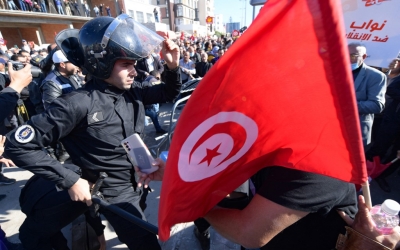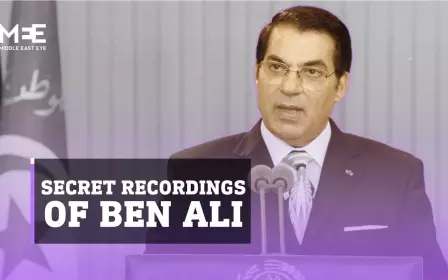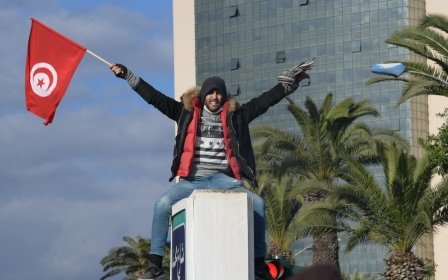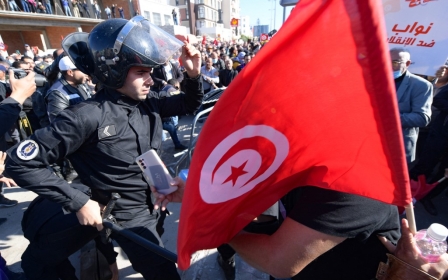Tunisia: Police block access to top judicial watchdog after presidential decree
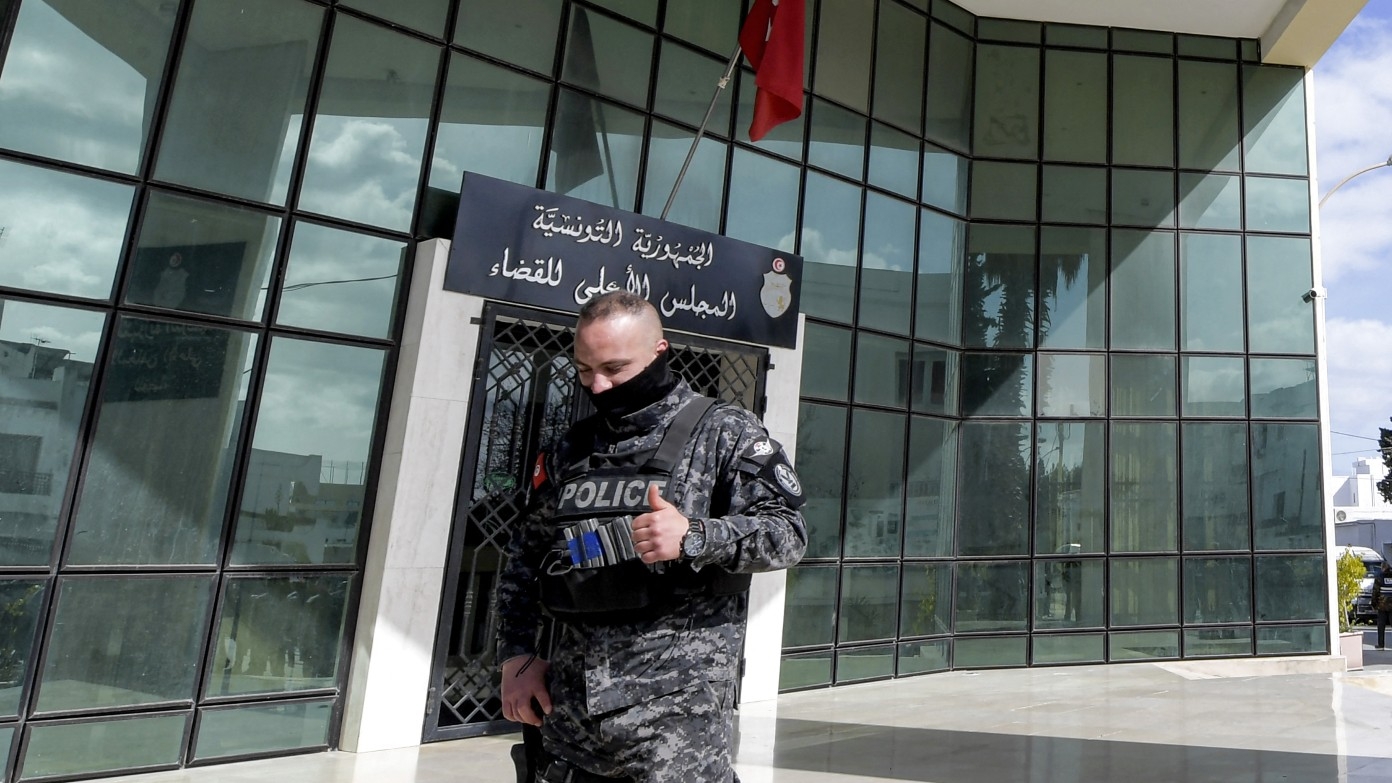
The headquarters of Tunisia's Supreme Judicial Council (CSM) was shut down on Monday by Tunisian security forces after President Kais Saied dissolved the powerful institution, prompting a backlash by judges and opposition leaders.
The gates of the council were chained with padlocks, and the employees have been barred entry since the president's decision, made after midnight, according to local media.AFP journalists saw security forces blocking all roads to the council headquarters in Tunis.
"We don't know who issued these orders but we know that they have no legal basis," CSM president Youssef Bouzakher told AFP.
Tunisian judges have denounced Saied's move as an "illegal" prelude to more control over the judiciary following his 25 July power grab, which included suspending parliament, sacking the prime minister, and assuming wide-ranging prosecutorial powers.
The president's move last year has angered the majority of political forces, including the powerful workers union UGTT, and have been branded a "constitutional coup".
Saied on Monday vowed that he would not interfere in court cases or judicial appointments.
"I will never interfere with the judiciary," he said, adding that he had only taken the decision to dissolve the council "because it had become necessary, and because the Tunisian people want the country to be cleansed".
Speaking to Prime Minister Najla Bouden in a filmed meeting posted on his Facebook page, he said the courts had been the scene of "farces".
"Whoever thought the judiciary was a tool to achieve his own personal or political goals must know that he will never be able to infiltrate the courts."
The CSM is an independent and constitutional body formed in 2016 with powers that include ensuring the independence of the judiciary, disciplining judges, and granting them professional promotions.
The body consists of 45 magistrates with the power to appoint judges. The parliament, now suspended, is tasked with appointing two thirds of the CSM's members who are then responsible for appointing the remainder.
Saied has accused the body of bias, corruption and delaying politically sensitive investigations - including into the assassinations of two left-wing politicians in 2013.
"Unfortunately in this country, some judges in the courts have manipulated the Chokri Belaid case," said Saied on Sunday, referring to a leftist leader who was shot three times outside his home in February 2013.
"This is not the first trial where they have tried to hide the truth for years. In this council, positions and appointments are sold and made according to affiliations."
"You cannot imagine the money that certain judges have been able to receive, billions and billions."
'Courts will be closed'
Mourad Masoudi, the head of the Tunisian Young Magistrates Association, warned on Monday that "today the council was closed, tomorrow the courts will be closed".
Masoudi told the Arabi21 news site that Tunisian judges plan to abstain from work and call for a general strike against Saied's move.
Bouzakher, the president of the CSM, lambasted Saied's decision as "illegally undermining the judiciary's independence".
Bouzakher said that the dissolving of the council is an attempt by Saied to forcibly bring the judiciary under presidential control.
"The president's decision is illegal and a direct assimilation of the presidency... judges will not be silent," Bouzakher said.
The Young Magistrates Association urged the CSM to continue its work as usual on Sunday. It said that Saied is attempting to control the judiciary and urged judges and public opinion to unite and act against this move.
Tunisia's suspended House of Representatives' presidency on Sunday condemned what it described as Saied's "continuous abuse" and "incitement" against judges and the judiciary.
Meanwhile, Anas al-Hamaydi, the head of the Association of Tunisian Judges, said on Monday that "some judges are under threat today, after the president's warlike and jihadi speech toward the judiciary."
Middle East Eye propose une couverture et une analyse indépendantes et incomparables du Moyen-Orient, de l’Afrique du Nord et d’autres régions du monde. Pour en savoir plus sur la reprise de ce contenu et les frais qui s’appliquent, veuillez remplir ce formulaire [en anglais]. Pour en savoir plus sur MEE, cliquez ici [en anglais].


